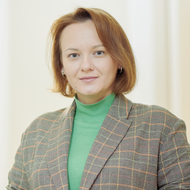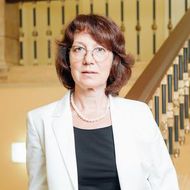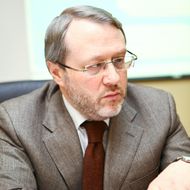Five Strategies for the Future: Key Achievements of HSE Strategic Projects in 2024

During the past year, scientists at HSE University have worked on five strategic projects aimed at advancing key areas essential to the development of modern individuals and society. Each of these projects is unique, yet they share common goals: creating innovative product solutions, generating fresh ideas for the economy, social sector, science, and education, and contributing to the university's research potential.
HSE University's Strategic Projects are carried out by distributed teams of researchers as part of the Priority 2030 Federal Academic Leadership Programme. These are comprehensive, interdisciplinary, full-cycle initiatives designed to address pressing challenges in Russia’s scientific, technological, and socio-economic development.
Empowering the Individual in a Changing World
The research conducted under the Strategic Project 'Success and Self-Sustainability of the Individual in a Changing World' focuses on systematising existing tools and developing new ones to advance education and promote mental health. In 2024, the project team launched the Jobs and Skills Navigator, a platform designed to support successful career development in IT. They also developed a mobile system for self-training in psycho-emotional resilience using biofeedback and introduced Cosmos of Self-Help, a Telegram channel offering advice on mental health.
Early-career researchers developed a training course for teachers on using generative AI, a tool for diagnosing dyslexia in school students, and AI-powered assistants for figure-skating training, online courses, and psychological self-help. Additionally, a tool for assessing the quality of online courses is being developed in collaboration with Skillbox.
'In 2024, alongside groundbreaking empirical research, the development of a market-oriented product line for personal self-enhancement was completed. The product ideas were conceived by the team in the early stages of the strategic project and went through a complete cycle, from scientific research to practical outcomes. According to monitoring data from last year, there is a shortage of tools for individual self-enhancement and a lack of trust in them in Russia. The team has set a highly important objective of promoting and distributing the developed solutions, aiming to enhance citizens' mental health and improve the quality of educational products,' explained Evgeniy Terentev, Director of the Institute of Education and Academic Supervisor of the Strategic Project 'Success and Self-Sustainability of the Individual in a Changing World.'
Social Sustainability and Human-Centred Economy
The team behind the Strategic Project 'Social Policy for Sustainable Development and Inclusive Economic Growth' focuses on developing evidence-based social policy tools that align with the goal of fostering economic growth. Special emphasis is placed on enhancing the well-being of Russians, particularly that of families. Thus, in 2024, HSE University joined a consortium for the development, testing, and implementation of the Russian child welfare index.

The project is creating a Digital Bank of tools and solutions for evidence-based social policy—an open-access online database of cases demonstrating the proven effects of various social policy measures both in Russia and internationally. In 2024, a demo version of the Digital Bank was tested, and a set of cases for it was prepared, including studies on the impact of child benefits and social support measures on family well-being, economic and reproductive behaviour, and the effects of measures undertaken as part of long-term care systems on public health. The results obtained were used in developing an action strategy for implementing family and demographic policy and supporting large families in the Russian Federation until 2036, as well as an action strategy in the interests of senior citizens in the Russian Federation until 2030.
The strategic project team also conducts labour market research to contribute to the effective use of labour resources in the context of workforce shortages. The recommendations from the Analytical Report titled Platform Employment in Russia: Prevalence Dynamics and Key Characteristics of Those Employed, prepared by researchers at HSE University, were used in the preparation of the ‘Labor Market Management’ federal project under the ‘Human Resources’ national project and in the development of the ‘Efficient and Competitive Economy’ national project.
In order to promote the principles of sustainable development in the Russian corporate environment, large-scale studies such as the collective monograph Russian Corporations in the New Reality: Financial Strategies on the Path to Antifragility and the analytical report ESG Practices in Russian Metallurgical Companies were published. Specialists for the sustainable development economy are trained in the master’s programmes ‘Sustainable Business Management’ and ‘Executive Master in Finance: Financial Leader of the Future.’
'The high quality of human potential, the solidarity and cohesion of Russian society, and the existence of a supportive environment for bearing and raising children are the foundations upon which Russia will rely for economic development and safeguarding its national sovereignty,' emphasised Lilia Ovcharova, Director of the Institute for Social Policy and Academic Supervisor of the Strategic Project 'Social Policy for Sustainable Development and Inclusive Economic Growth.'
Forecasting in Conditions of Uncertainty
The Strategic Project 'National Centre of Science, Technology and Socio-Economic Foresight' aims to create a global centre of excellence in forecasting and foresight at HSE University. Using advanced methodologies, short-, medium-, and long-term forecasts are being developed to offer a comprehensive vision of Russia and the world's future. The report Scenarios for the Development of the Russian Economy in the Context of Geopolitical Turbulence, which includes an updated forecast of Russia's development up to 2030 across four scenarios, continues to attract significant interest from major private and public companies. Drawing on a survey of a unique panel of experts (over 500 leading Russian specialists), consensus forecasts have been developed regarding the medium-term prospects for key areas of the economy and social sphere.
A significant innovation in 2024 was the launch of a series of quarterly newsletters titled Trends. Events. Figures, focusing on Russia's development trends across 14 areas, including macroeconomics, geopolitics, and demography. The materials from the January–May 2024 issue alone generated over 300 media reports.
Several materials related to the strategic project have been published, including the collective monograph The Future of World Science, which examines the impact of global economic and social trends on science and explores the prospects for technological development in the years ahead.
Teams of early-career scientists, including those from HSE University's regional campuses, are actively engaged in this work. They conduct research on topics such as forecasting companies' financial performance, sanctions against Russia, investments in public infrastructure renovation, and factors influencing public willingness to engage in charitable activities.
‘This year, the implementation of this strategic project focused specifically on achieving high-quality applied results that can be used in economic activities and public administration, meeting the needs of government, business, and society. A number of analytical products have been prepared to enable authorities and companies to make informed strategic decisions based on detailed forecasts and unique databases. The increased volume of commercialisation of the results obtained, along with growing media interest, demonstrates that the implementation of the strategic project enables HSE University to enhance our contribution to addressing priority socio-economic objectives,' said Leonid Gokhberg, First Vice Rector and Academic Supervisor of the Strategic Project 'National Centre of Science, Technology and Socio-Economic Foresight.'
Human-Centred AI Technologies
The Strategic Project 'Human Brain Resilience: Neurocognitive Technologies for Adaptation, Learning, Development and Rehabilitation in a Changing Environment' aims to develop ‘3N’ technologies: for neurodiagnostics, neuroadaptation, and neuroreabilitation. In 2024, unique tools were developed for the next-generation domestically produced magnetoencephalograph, software for processing data on the activity of deep cortical structures, a deep learning model for recognising and classifying structural MRI images and using them to predict cognitive test results, as well as solutions for passive speech mapping. As part of the project, the interdisciplinary team at the Centre of Excellence in Neurotechnology developed a prototype web-based service that displays structured 3D models of the brain's pathways created through 3D scanning of drugs and subsequent markup using a specialised software package.

Another key focus is the development of augmented intelligence technologies to address the complex challenges humans face in the modern world. A prototype of the AI Detector web service has been developed, enabling the detection of text written by AI. Under the guidance of Vasily Klucharev (who successfully defended the first doctoral dissertation in Russia in cognitive science in 2024), a cartographic tool is being developed to analyse the environmental conditions around schools, allowing for the assessment of cognitive and psychological well-being index in a selected area. A team from the HSE Campus in Perm received a patent for the NoteIT software, which is used to conduct experiments on music perception in school-age children.
HSE University's distributed neurocognitive cluster continues to make progress. The HSE Institute for Cognitive Neuroscience established a Cognitive Health and Intelligence Centre as part of its structure, and the St Petersburg School of Social Sciences established the Institute of Health Psychology. In 2024, two Litfond clinics (for adults and children) and the Serbsky National Medical Research Centre for Psychiatry and Narcology joined the Transfer of Neurocognitive Technologies consortium. The strategic project team actively participates in educational and awareness-raising activities, including the international schools ‘Methods and Algorithms of Consumer Behaviour Research’ and ‘Active and Passive Methods of Brain Research,’ the Cognitive Sciences track of the interdisciplinary summer school at the HSE Campus in Nizhny Novgorod, and other events. The leading researchers of the strategic project discussed these and other results at the strategic project's final seminar.
Human-Centred AI
Given the rapid advancement of AI technologies and their growing importance for Russia's technological and socio-economic development, a new Strategic Project 'Human-Centred AI' was launched at HSE University in 2024. It aims to develop a wide range of AI assistants, the implementation of which will significantly improve the productivity and decision-making processes in education, science, medicine, business, and management.
An automated database of natural hazards across different regions of Russia, along with measures for adapting to them, has been created to support the rapid assessment of areas when planning territorial development with consideration of potential climate risks. The implementation of the MVP application ‘AI Employee of the Programme Office,’ planned for 2025, will relieve HSE University's administrative staff of routine tasks and increase the speed at which assistance can be provided. AI assistants have been developed to support preoperative planning and postoperative rehabilitation in spinal surgery. Particularly noteworthy is the active involvement of early-career researchers in developing AI assistants for businesses, students, teachers, and scientists.
'Our strategic project has made significant progress in developing solutions to boost efficiency and productivity across key areas of society, from education to medicine to the environment. As part of the strategic project, efforts are also underway to support the deployment of AI models in the university's administrative processes,' explained Alexey Masyutin, Director of the AI and Digital Science Institute and Academic Supervisor of the Strategic Project 'Human-Centred AI.'
New Ideas and Competencies
In 2024, two competitions focused on priority research topics were organised by the Strategic Development Programme Office in collaboration with the strategic project teams.
As a result of the young scientists' project competition, 24 research teams received support; half were led by students, including doctoral students, while the rest were headed by HSE University staff under the age of 35. Competition participants had the opportunity to submit applications on any of the five strategic project topics. The supported projects successfully achieved their objectives, including the creation of a unique Russian Fertility Database for Russian women born between 1932 and 1983, an online service that predicts the financial performance of small and medium-sized Russian companies across various industries and regions, a Python library for preprocessing, analysing, and visualising oculomotor data, and more.
Another tool tested in 2024 for building research teams was a competition focused on competencies in artificial intelligence and machine learning. Its goal was to form a team for the Strategic Project 'Human-Centred AI.' The competition placed special emphasis on developing research competencies at the HSE campuses in St Petersburg, Nizhny Novgorod, and Perm, where, based on the results, five projects are now being implemented to create AI assistants in the fields of education and medicine. A project was supported to develop a unique MLOps platform for executing and monitoring AI models to enable management of the entire lifecycle of machine learning models. The project teams formed based on the competition results included more than 70 specialists in artificial intelligence and machine learning, with more than 15 highly qualified researchers and developers recruited to the university for the first time.

Elena Odoevskaya, Vice Rector, Coordinator of the HSE Development Programme
'In 2024, we can already discuss the completion of the three-year cycle of the Priority 2030 programme at our university. During this period, thanks to the strategic projects, we have successfully formed a new product portfolio, which includes commercially successful developments, technologies currently being tested, and entirely new ideas yet to be transformed into tangible products for customers. Indeed, the strategic projects are five large, distributed interdisciplinary laboratories that not only conduct cutting-edge research but also serve as testing grounds for new institutional mechanisms.'
See also:
‘The Development of Creative Industries Has Become a Priority for Both Russia and Uzbekistan’
The Tourism Development Institute under the Committee for Tourism of the Republic of Uzbekistan and HSE University have signed a cooperation agreement aimed at establishing and developing academic, cultural, and other partnerships in the fields of education and tourism. The initiative for signing the agreement came from the Institute for Creative Industries Development at the HSE Faculty of Creative Industries.
MIEM Begins Open Testing of Claw Engine 2.0
The team at MIEM’s Game Engineering and Interactive Systems studio has begun open testing of the second version of its game engine, Claw Engine. The HSE News Service takes a closer look at the product, which is being developed by MIEM’s student project teams.
‘We Demonstrated That HSE University Can Not Only Build a Satellite, but Maintain Its Operation’
The first HSE University satellite has completed its work in orbit after more than 35,000 hours of trouble-free operation, one billion kilometres travelled (24,600 orbits around the Earth), and hundreds of full-frame shots taken of the Earth's surface across an area of 320,000 km2. The HSE News Service shares the results of the satellite’s mission and the team’s plans for the near future.
Recruitment Campaign 2025: How HSE Attracts Top International Talent
For nearly two decades, HSE University’s international recruitment programmes have brought highly qualified professionals from the global academic job market to Russia—from recent PhD graduates of leading universities to experienced international scholars. On September 1, 2025, the university expects 50 new international faculty and researchers to join its academic team.
Urban Studies Experts from HSE Discuss Cooperation Prospects with Chinese Partners
The team of the HSE Faculty of Urban and Regional Development (FURD) has held a series of meetings with partners in China as part of its working visit focused on advancing cooperation. The agenda included urban and agglomeration ranking research, the development of unique educational programmes in urban studies, and other key topics.
HSE University and Sultan Qaboos University Discuss Cooperation in Science and Education
On May 29, 2025, a delegation from Sultan Qaboos University paid an official visit to HSE University. The meeting was held at the HSE building on Pokrovsky Bulvar and was dedicated to the development of partnership in science and education. The delegation was led by His Highness Dr Fahad Al Said, Vice Chancellor of Sultan Qaboos University. During the visit, the parties signed an agreement on cooperation and academic exchange between the universities.
First Digital Adult Reading Test Available on RuStore
HSE University's Centre for Language and Brain has developed the first standardised tool for assessing Russian reading skills in adults—the LexiMetr-A test. The test is now available digitally on the RuStore platform. This application allows for a quick and effective diagnosis of reading disorders, including dyslexia, in people aged 18 and older.
HSE Scientists Explain How to Identify Brain Areas Critical for Language Function During Surgery
The HSE Centre for Language and Brain conducted a course on tractography, a method that enables visualisation of key brain connections and helps surgeons avoid damaging language-critical areas during surgery. The course was attended by neurosurgeons and radiologists from Moscow and other Russian regions who are interested in methods of preoperative language mapping.
Forbes University Ranking: HSE Has Top Reputation among Employers
On May 22, Forbes Education released its updated ranking of the 100 best universities in Russia for 2025. HSE University retained its second-place position, having established itself as the university with the highest employer reputation. Among the top 20 were 12 universities from Moscow, three from St Petersburg, two from Tatarstan, and one each from the Sverdlovsk, Novosibirsk, and Tomsk regions.
HSE and Sichuan University Sign Cooperation Agreement
On May 20, 2025, HSE University hosted an official delegation from Sichuan University headed by President Wang Jinsong. During the meeting, the universities signed a cooperation agreement.






